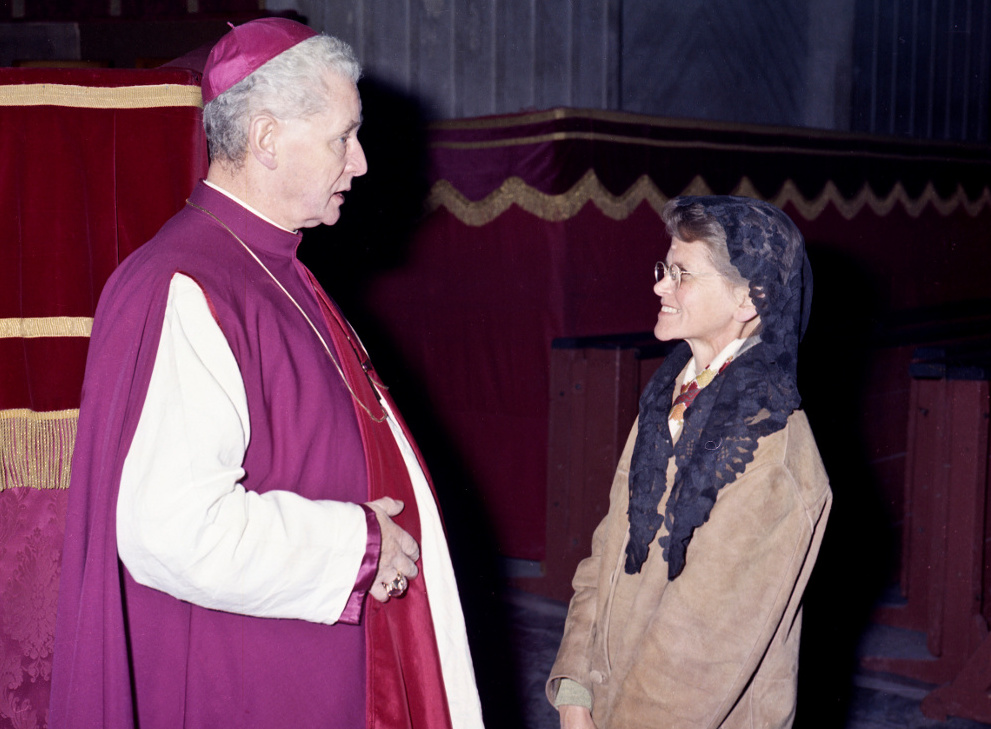
Australian native Rosemary Goldie speaks with a bishop during a meeting of the Second Vatican Council in 1964. (CNS/Catholic Press Photo)
Rosemary Goldie was a historic figure for the church in many ways. With her 1966 appointment as undersecretary of the Council for the Laity, she became the first woman to hold a senior management position in the Roman Curia.
Even before that, she was one of the first women appointed to attend the Second Vatican Council. Pope Paul VI eventually named a total of 23 women, 10 of them members of religious orders, as official observers at the council's last two sessions in 1964 and 1965.
The observers attended the council's plenary meetings as silent witnesses. But they took an active part in the preparation of "Gaudium et Spes," the council's Pastoral Constitution on the Church in the Modern World, and of the council's Decree on the Apostolate of the Laity.
During the working group's deliberations on the apostolate draft decree, Goldie argued for distinguishing various fields of the apostolate, such as the family, associations and church communities.
According to Adriana Valerio in her 2012 book, "Mothers of the Council," Goldie believed breaking the apostolates into categories was necessary to develop a spirituality adapted to lay Catholics' different lifestyles and needs.
Her goal was to have both laymen and laywomen be recognized as mature and responsible adults who could carry out the same tasks and hold the same responsibilities, Valerio wrote.
Goldie didn't want women to be seen or treated as a separate "issue," as if they were somehow marginalized from society, or to have their concerns seen as of significance only to themselves, the author wrote in "Mothers of the Council."
Valerio wrote that it was largely owing to Goldie's efforts that the final decree included the statement: "Since in our times women have an ever more active share in the whole life of society, it is very important that they participate more widely also in the various fields of the Church's apostolate."
One of four children of journalists from Sydney, Goldie's involvement in lay ministry can be traced to 1938, when she made her first trip to Rome while studying at the Sorbonne in Paris. She returned to Rome to join the Permanent Committee for International Congresses of the Lay Apostolate when it was established in 1952 by Pope Pius XII. In 1959, she became executive secretary of the committee, which became the nucleus of the Council for the Laity created by Pope Paul VI following the Second Vatican Council.
Goldie served as undersecretary of the Council for the Laity from 1966 to 1976, working to promote the role of laypeople in church life.
She subsequently served as vice president and professor on the lay apostolate at the Pastoral Institute of the Pontifical Lateran University in Rome.
After retiring to Australia, where she remained active in efforts to develop the role of the lay apostolate in the church, Goldie died in 2010 in Randwick at the age of 94.